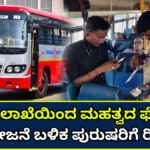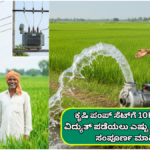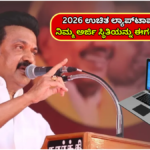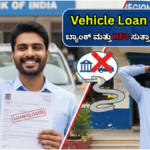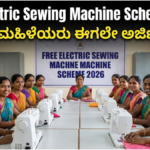Marriage is one of the most important decisions in a person’s life. It marks the beginning of a lifelong partnership built on trust, understanding, emotional support, and companionship. In India and many other parts of the world, two dominant marriage systems continue to coexist: Love Marriage and Arranged Marriage. While both systems aim to bring two compatible individuals together, the journey, process, expectations, and experiences can be vastly different.

In modern society, where traditions are blending with new-age ideologies, young people often wonder:
“Will I have a love marriage or an arranged marriage?”
To answer this question meaningfully, one must understand both systems in depth—their strengths, challenges, expectations, and compatibility factors.
This 2000-word article offers a complete, neutral, and insightful breakdown of Love Marriage and Arranged Marriage, helping you analyze which style resonates with your personality, upbringing, and life goals.
1. Understanding the Two Marriage Systems
Marriage in India has always been more than just the union of two individuals—it is a merging of families, cultures, and emotional values. The evolving societal landscape has given rise to two different but equally significant approaches:
1.1 What Is a Love Marriage?
A Love Marriage occurs when two individuals choose their life partner based on mutual attraction, affection, and emotional connection. The relationship often begins with friendship, admiration, shared experiences, or a deep personal bond.
Love marriages are commonly associated with:
- Self-choice
- Emotional bonding
- Romantic compatibility
- Shared values and lifestyle preferences
- Understanding each other before marriage
Modern youth often prefer love marriages because they feel confident choosing someone who understands their dreams, personality, and goals.
1.2 What Is an Arranged Marriage?
An Arranged Marriage is a traditional system in which the family—usually parents or close relatives—selects a suitable partner for their son or daughter. This selection is based on multiple factors such as:
- Family background
- Culture and traditions
- Religion or community
- Social compatibility
- Education and profession
- Economic stability
The couple is introduced after families approve the match, and both individuals are given an opportunity to interact before making the final decision.
Arranged marriages emphasize stability, shared values, and long-term family harmony.
2. The Foundation of Love Marriage
Love marriage grows gradually through emotional bonding and personal choice. Let’s explore its core foundations.
2.1 Emotional Connection
Love marriages begin with feelings of affection and attachment. This emotional connection often gives partners confidence that they understand each other well.
2.2 Strong Personal Compatibility
Because the couple interacts for months or years before marriage, they learn about:
- Habits
- Likes and dislikes
- Future goals
- Personality traits
- Strengths and weaknesses
Such knowledge helps develop a stronger bond.
2.3 Mutual Respect and Freedom of Choice
In love marriages, both individuals independently decide to commit. This creates a sense of equality, respect, and shared importance in decision-making.
2.4 Communication and Transparency
Since the couple builds the relationship personally, their ability to communicate openly becomes a major advantage. Problems are often discussed directly and solved mutually.
3. Strengths of Love Marriage
Love marriages offer several benefits that attract modern generations:
3.1 Better Understanding Before Marriage
The familiarity gained before marriage reduces the fear of marrying a stranger.
3.2 High Emotional Satisfaction
The relationship begins with love, which leads to a sense of warmth and emotional fulfillment.
3.3 Support for Individual Preferences
Partners accept each other’s dreams, career choices, and personal identities.
3.4 Greater Flexibility
Couples shape their life together based on shared dreams rather than societal expectations.
3.5 Modern Outlook
Love marriages encourage independence, gender equality, and the idea of companionship.
4. Challenges of Love Marriage
Despite its strengths, love marriage has its own set of challenges:
4.1 Lack of Family Support in Some Cases
When families disagree, the couple may face emotional or social pressure.
4.2 Cultural and Lifestyle Differences
Differences between families may create conflicts after marriage.
4.3 Over-Expectations
Since love marriages often involve idealization, unrealistic expectations can lead to disappointment.
4.4 Personal Adjustment Issues
When the couple has known each other mostly in romantic settings, real-life responsibilities may cause stress.
4.5 Financial Stress
If both partners come from different economic backgrounds, financial decision-making can become complicated.
5. The Foundation of Arranged Marriage
Now let’s examine arranged marriage—the system deeply embedded in Indian cultural roots.
5.1 Family Involvement
Families play a central role in identifying a compatible match. They analyze factors such as family values, upbringing, and social reputation.
5.2 Background Compatibility
Arranged marriages focus on aligning:
- Cultural traditions
- Religion or caste
- Social background
- Education
- Financial stability
This creates a strong foundation for long-term family harmony.
5.3 Gradual Development of Love
Unlike love marriages where romantic feelings come first, arranged marriages often witness love growing gradually after marriage.
5.4 Practical Evaluation
Families assess practical aspects like:
- Partner’s career
- Future plans
- Family responsibilities
- Health and lifestyle
This makes arranged marriages structured and stable.
6. Strengths of Arranged Marriage
Arranged marriages offer benefits rooted in family support and cultural stability:
6.1 Strong Family Support System
Since families approve the match, the couple receives emotional, financial, and social backing.
6.2 Lower Social Pressure
As the marriage aligns with societal norms, couples face fewer external judgments.
6.3 Balanced Decision-Making
Families help evaluate important aspects that young individuals may overlook.
6.4 Shared Cultural Values
Partners share similar traditions, reducing cultural conflicts.
6.5 Long-term Stability
Since families ensure compatibility, relationships often remain strong and long-lasting.
7. Challenges of Arranged Marriage
Although arranged marriage has many strengths, it also faces challenges:
7.1 Limited Pre-Marriage Interaction
Some couples feel pressure to adjust quickly as they barely know each other before marriage.
7.2 Emotional Gap Initially
Since love develops gradually, the first few months may feel emotionally distant.
7.3 Expectations Imposed by Families
In-laws’ involvement can sometimes cause conflict, especially for independent-minded individuals.
7.4 Pressure to Accept the Match
Some individuals accept a match due to family pressure rather than personal choice.
7.5 Compatibility Issues
Despite background matching, personality differences may lead to conflict if not addressed early.
8. Love Marriage vs Arranged Marriage: A Deep Comparison
To analyze which marriage style suits you, consider the following factors:
8.1 Compatibility
- Love Marriage: Based on emotional bonding
- Arranged Marriage: Based on background matching
8.2 Decision-Making
- Love Marriage: Freedom of choice
- Arranged Marriage: Guidance from families
8.3 Stability
- Love Marriage: Stability depends on mutual understanding
- Arranged Marriage: Stability strengthened by family support
8.4 Cultural Fit
- Love Marriage: Can have cultural gaps
- Arranged Marriage: Usually culturally aligned
8.5 Emotional Journey
- Love Marriage: Starts with love, grows with adjustment
- Arranged Marriage: Starts with adjustment, grows with love
9. Psychological Perspective
9.1 Love Marriage Psychology
Individuals who choose love marriage often:
- Seek emotional intimacy
- Prefer independence
- Value freedom of expression
- Want equal partnership
9.2 Arranged Marriage Psychology
Individuals who prefer arranged marriage often:
- Trust family decisions
- Value cultural traditions
- Seek long-term stability
- Prefer community-based support
10. Social Changes in Modern India
India is witnessing a blend of both systems:
- Many arranged marriages now include dating before marriage.
- Many love marriages gain family approval before the wedding.
- Inter-caste and inter-religion love marriages are slowly being accepted.
- Parents are becoming more flexible.
This shows that society is evolving, merging tradition with modern thinking.
11. Which One Is Better for You?
There is no universal answer. The right choice depends on:
- Your personality
- Your family background
- Your expectations from a life partner
- Your emotional maturity
- Your level of independence
- Your readiness to take responsibility
Choose Love Marriage if you:
- Believe in emotional bonding
- Prefer choosing your partner
- Feel confident handling challenges without much family support
Choose Arranged Marriage if you:
- Value family involvement
- Prefer background compatibility
- Feel comfortable with meeting your partner through family networks
12. Conclusion: Marriage Is a Partnership, Not a Competition
Whether it is a Love Marriage or an Arranged Marriage, the success of the relationship depends on:
- Mutual respect
- Understanding
- Patience
- Emotional support
- Communication
- Trust
- Shared goals
A marriage—of any type—thrives when both partners support each other wholeheartedly.
In the end, it is not the type of marriage that determines happiness, but the quality of the relationship.
A successful marriage is one where two people choose to grow together with love, trust, and compassion.














